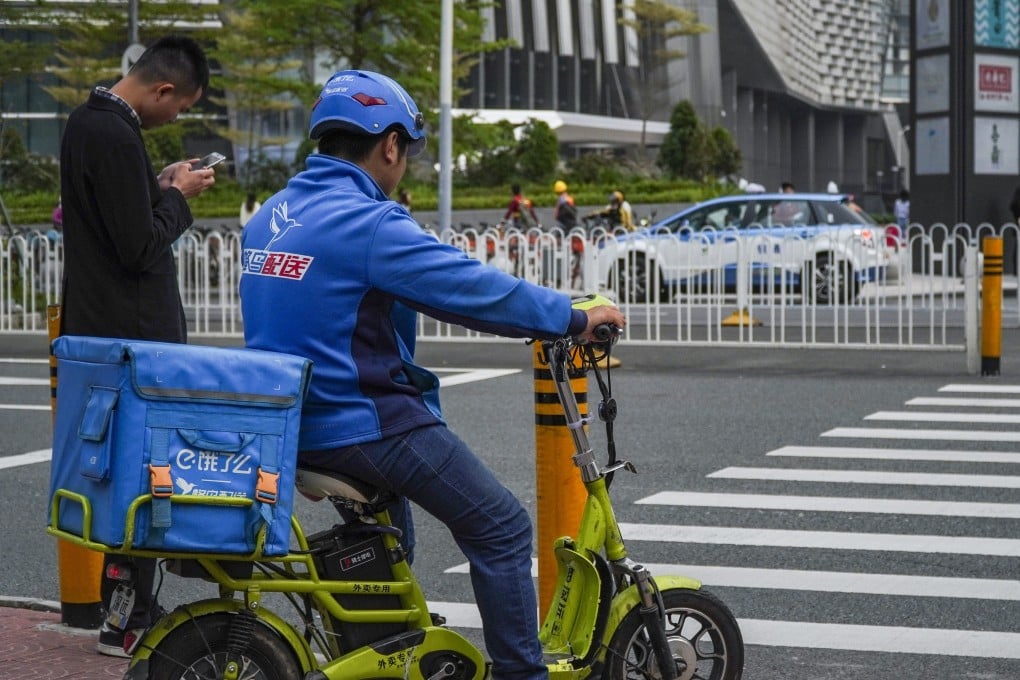China’s Ele.me stirs outcry after initial low compensation for delivery worker’s death
- The 43-year-old courier came from northwest Shanxi province but worked in Beijing for Fengniao Zhongbao, Ele.me’s crowdsourced on-demand logistics service
- Ele.me is the second-largest player in the on-demand market, with more than 3 million riders who handle deliveries ranging from packages to food

Chinese food delivery giant Ele.me is facing a backlash on social media after the platform initially said it could only pay 2,000 yuan (US$309) in compensation to the family of a courier who collapsed on the job, sparking a debate over worker’s rights in the gig economy era.
Under pressure from the public, the food delivery platform has increased accident insurance via its crowdsourced on-demand logistics service, Fengniao Zhongbao. In a statement on Friday night, Ele.me said the insurance structure for crowdsourcing couriers was not reasonable but after “discussion with all parties”, the insurance payment for the deceased worker’s family will be increased to 600,000 yuan.
The 43-year-old courier surnamed Han, from northwest Shanxi province but working in Beijing, was a gig worker for Fengniao Zhongbao. He died while on duty last month.
He was covered by an employment arrangement common among many on-demand services internet companies, meaning that he was not a full-time employee for the food delivery platform, exempting it from any legal responsibility for the death.
“The employment arrangement is the biggest loophole in the on-demand food delivery industry,” said Meng Huixin, an analyst at Hangzhou-based e-commerce consulting firm 100ec.cn. “Most on-demand food delivery platforms are not tied to riders in labour contracts. Instead they seek to reduce costs and avoid legal risk by outsourcing their demand for labour.”
